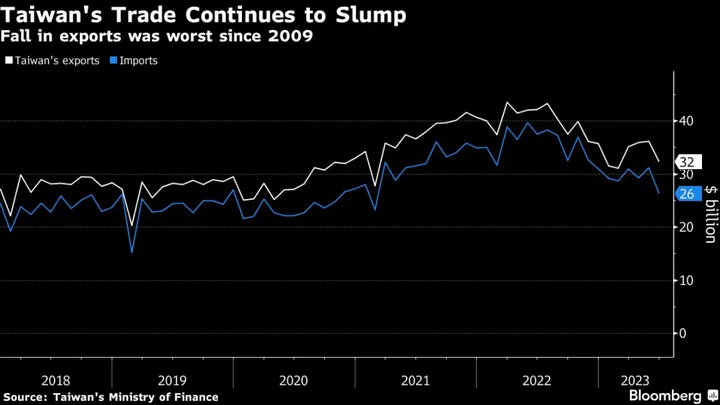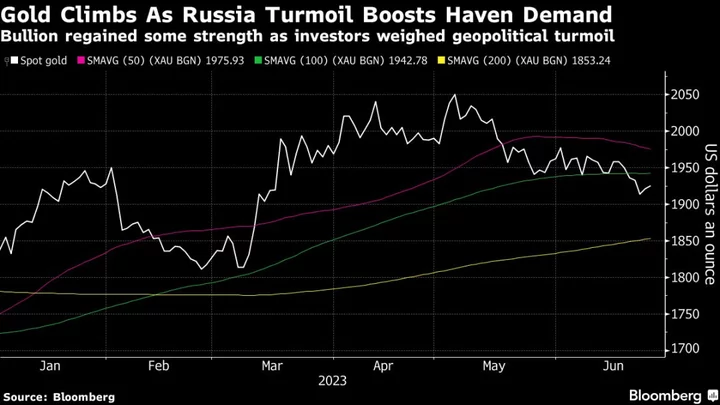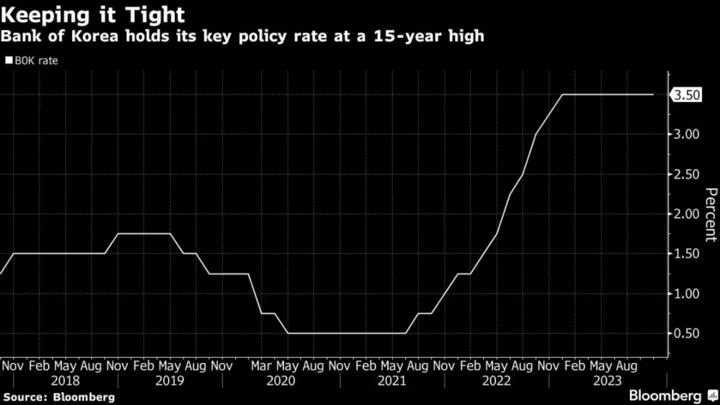Oil dipped after the biggest weekly gain since early April as investors juggled signs of tightening supply and persistent demand concerns.
Brent futures traded near $78 a barrel after closing 4.8% higher last week following a pledge by Saudi Arabia and Russia to reduce supply. The market is flashing signs of strength and speculators have boosted their bullish bets for the global benchmark and West Texas Intermediate crude.
However, Treasury Secretary Janet Yellen said the risk of a US recession is “not completely off the table,” adding an element of caution to the market. She made the remark in a CBS interview broadcast on Sunday.
Oil remains about 9% lower for the year due in part to China’s lackluster economic recovery and aggressive monetary tightening by central banks. A solid US employment report keeps the Federal Reserve on track to boost interest rates this month, maintaining headwinds for crude prices.
In Asia, data Monday showed China’s consumer inflation rate was flat in June while factory-gate prices fell further, underlining continued weakness in demand. The International Energy Agency and OPEC will provide snapshots of the market when they release monthly reports later this week.
Cuts by Saudi Arabia and Russia “will start to tighten the market quickly,” Wayne Gordon, commodity strategist at UBS Group AG, said on Bloomberg TV. Supply is “starting to top out and demand has been robust,” he added.
To get Bloomberg’s Energy Daily newsletter direct into your inbox, click here.
The US announced on Friday that it’s purchasing 6 million more barrels of crude for the Strategic Petroleum Reserve as the nation continues to slowly refill the emergency stockpile. The purchases, scheduled for October and November, come as the reserve is at its lowest point in 40 years.
--With assistance from David Ingles and Haslinda Amin.









